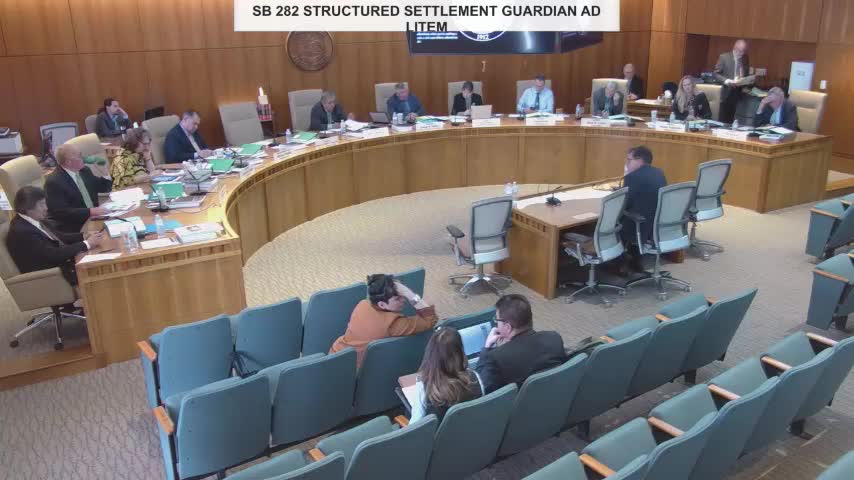Senate committee deadlocks on tighter review of structured‑settlement buyouts
Get AI-powered insights, summaries, and transcripts
Subscribe
Summary
A proposed bill to require court‑appointed financial advisers to review structured‑settlement buyout offers resulted in a tie vote in the Senate Finance Committee. Sponsors said the measure aims to protect recipients from low‑value lump‑sum offers from purchasers; supporters and disability‑advocates urged court safeguards.
The Senate Finance Committee reached a tie on a proposal to strengthen judicial review of structured‑settlement buyouts, leaving the measure without a committee recommendation.
Sponsor remarks explained the bill would require courts, before approving a lump‑sum purchase of a future payment stream, to appoint a neutral financial adviser (often called a guardian ad litem in testimony) to provide an independent present‑value analysis and report to the judge. The sponsor said the court should appoint the adviser and the purchaser would pay the adviser’s fee; the goal is to prevent predatory offers that leave settlement recipients with far less value than the structured stream.
Witnesses in support included disability advocate Nat Dean, who told the committee structured settlements can both protect and reduce long‑term value for recipients depending on the terms. The sponsor gave examples where a multi‑million‑dollar lifetime stream was purchased by firms for a small fraction of the stream’s present value.
Why it matters: Advocates contend that some purchasers advertise heavily to buy structured payments at steep discounts, and recipients—particularly vulnerable people—may accept poor offers. The bill would add a court‑appointed financial review step paid by the purchaser to help judges evaluate fairness.
Action and vote - Motion to give a due pass (mover: Senator Hills; second: Senator Tobias). - Recorded votes included: Senator Campos — yes; Senator Lanier — no; Senator Padilla — yes; Senator Steinborn — yes; Senator Tobiasen — no; Senator Trujillo — yes; Senator Woods — no; Senator Shandoh — yes; Senator Muñoz — no. The committee recorded a tie vote and did not issue a majority recommendation.
Questions from senators addressed who would pay the guardian ad litem, how the adviser would be selected and whether the process could unintentionally bias the outcome if the purchasing company funded the adviser. The sponsor said courts would make appointments and should choose advisers they trust; the bill requires the purchaser to pay the adviser’s cost.
Where the measure stands: Committee action ended in a tie on the due‑pass motion; sponsors and some committee members said they would refine language about appointment and neutrality of the adviser before further action.
